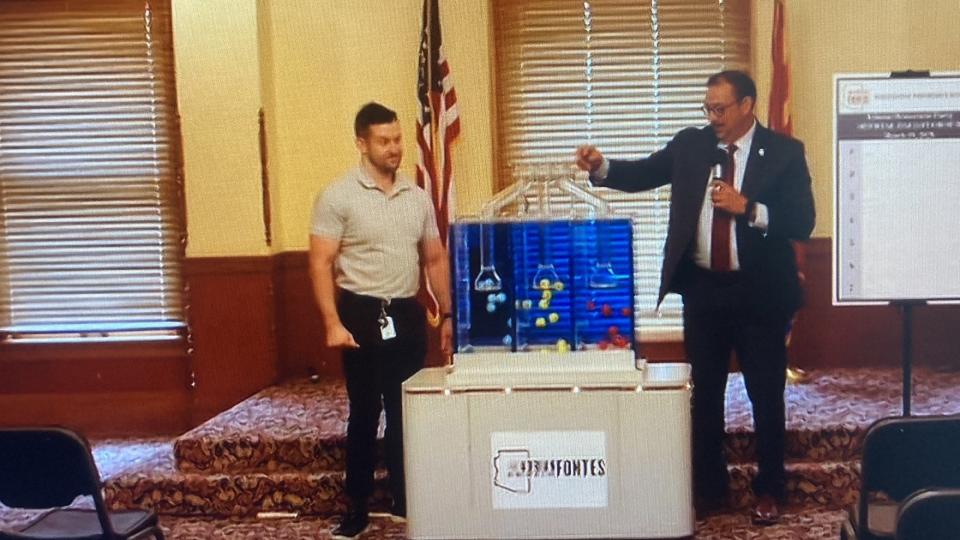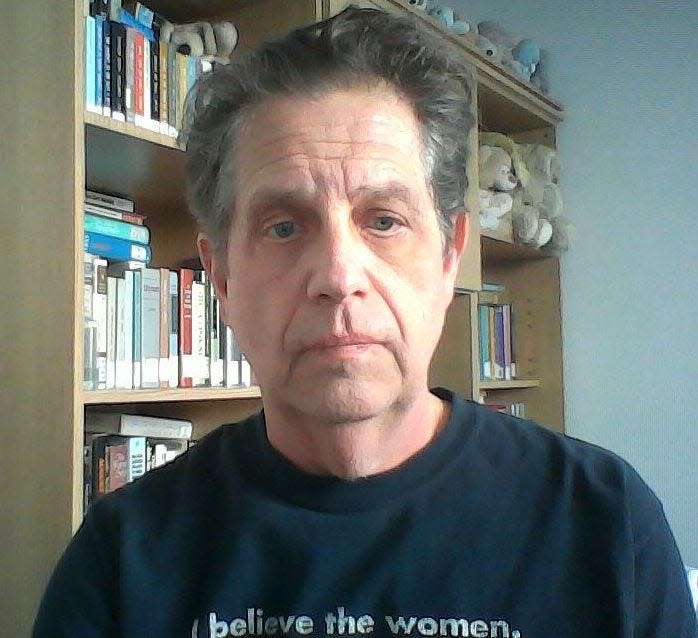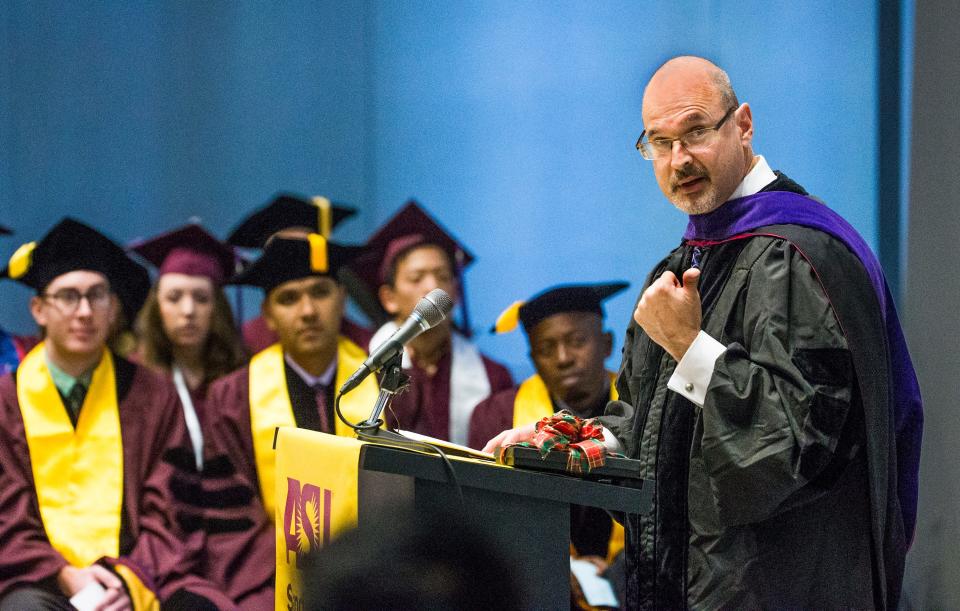Arizona loses No Labels lawsuit, must reject non-presidential candidates from ballot
The Arizona Secretary of State erred by forcing the new No Labels Party to accept candidates for offices besides those of president and vice president, a federal judge ruled Tuesday.
Under the order, the state has to help No Labels meet its goals by rejecting statements of interest from No Labels candidates in the primary election and disallowing any candidate to run in the primary under the party’s banner.
If No Labels nominates any candidates for president and vice president, they can be placed on the ballot for November’s general election, U.S. District Judge John Tuchi wrote in the ruling.
“The Party has substantial First Amendment rights to structure itself, speak through a standard bearer, and allocate its resources,” Tuchi wrote. “The balance of equities thus tips in favor of the Party.”
Arizona’s interest in No Labels candidates, by contrast, is “minimal,” the order stated.
One side effect of the ruling is that the nearly 19,000 people registered statewide in the No Labels Party as of October won't be able to vote in the primary election. Unlike independents, party members can't request a primary ballot from any party they want.

“The court is dead wrong,” Arizona Secretary of State Adrian Fontes said in a prepared statement, vowing to prepare an expedited review of the ruling by the U.S. 9th Circuit Court of Appeals.
The ruling disenfranchises No Labels voters, he said. Even worse, existing law covering candidates would be overturned if Tuchi’s decision becomes a legal precedent. It “could potentially derail the entire candidate nomination process," according to Fontes.
Other parties could “seek similar deviations from decades of well-established legislative policies,” he said. “The results would be that parties, rather than voters, select candidates for the ballot.”
No Labels said the ruling "strongly vindicates our constitutional rights."
"We will continue our fight to secure ballot access for the express purpose of allowing all Arizonans and all Americans to have another choice on the Presidential ballot," according to a statement attributed to the party's National co-chair, Benjamin F. Chavis, Jr. and its director of ballot integrity, former Democratic Missouri Gov. Jay Nixon. "Our ballot line cannot be hijacked. Our movement will not be stopped.”
Party sued to limit ballot access
No Labels was founded as a centrist group a decade ago and was previously known mainly for its affiliated Problem Solvers Caucus in Congress. The group has sought ballot access for the 2024 election, saying it would field a third-party presidential candidate if voters have no other choices but President Joe Biden and former President Donald Trump.
Democrats and liberal groups have warned that No Labels potential third-party presidential candidate would only serve to tip the election to Trump by siphoning votes from Biden. The Arizona Democratic Party launched its own lawsuit last year to keep No Labels off the ballot at all, but a judge ruled in August the party could stay.
No Labels turned in more than enough valid signatures in March to qualify as an official political party. As of last week, the party had qualified for the ballot in 13 states including Arizona. Senator Joe Manchin of West Virginia appears to be preparing for a possible run for president with the party.
The party sued Arizona after Secretary of State Adrian Fontes, a Democrat, said he would not honor its wish to stop registered No Labels voters from running as candidates for any office they chose. Fontes claimed that the party wanted to “break their promise” to registered party members who signed nominating petitions that "explicitly stated" the party would participate in Arizona's August primary election.

Five people are now listed as No Labels candidates on the Secretary of State’s website for offices ranging from state legislator to U.S. senator. One of the candidates, Richard Grayson, has openly stated he’s a Democrat who switched to the No Labels party and ran for office only to protest the new party.
Grayson told The Arizona Republic he thought Tuchi's ruling was "unfair," especially to No Labels voters.
Though he won't be on the ballot now in Arizona, Grayson's still an official No Labels candidate in Alaska for Congress.
"I will use the campaign to expose the scam of No Labels (and to) excoriate the selfish and evil people who have organized this effort and their attempt to make sure that Donald Trump wins in November," Grayson said.
Judge: No right to appear on ballot as party's candidate
Tuchi explained in his order that the rules behind state-run primary elections are intended to help avoid corruption by stopping parties from pre-selecting candidates in a proverbial “smoke-filled room.”
In a Jan. 5 hearing on the lawsuit, Tuchi noted, Fontes relied heavily on a 2008 ruling in Alaska denying third parties, including the Libertarian Party, from handling candidate selection in any manner they wanted. But that case involved parties that intended to run candidates in various offices.

“The state does not have an interest in eliminating corruption in a primary election (or in a party’s selection of its primary candidates) where the party is not running any candidates,” Tuchi wrote.
Additionally, no case law supports the idea that registered members of a political party have the right to appear on a ballot as a party’s candidate, he wrote, adding that citizens can take other avenues to run for office.
Fontes also raised concerns at the hearing that No Labels voters would be confused when they don’t receive primary ballots, “and that such confusion could lead to threats against election workers,” Tuchi wrote. “But the Secretary provided no evidentiary or legal support for these suggested interests.”
Tuchi asked No Labels to present the amount of their attorneys’ fees for potential reimbursement by the state.
Reach the reporter at rstern@arizonarepublic.com or 480-276-3237. Follow him on X @raystern.
This article originally appeared on Arizona Republic: Judge: Arizona must adhere to No Labels wishes on candidates

